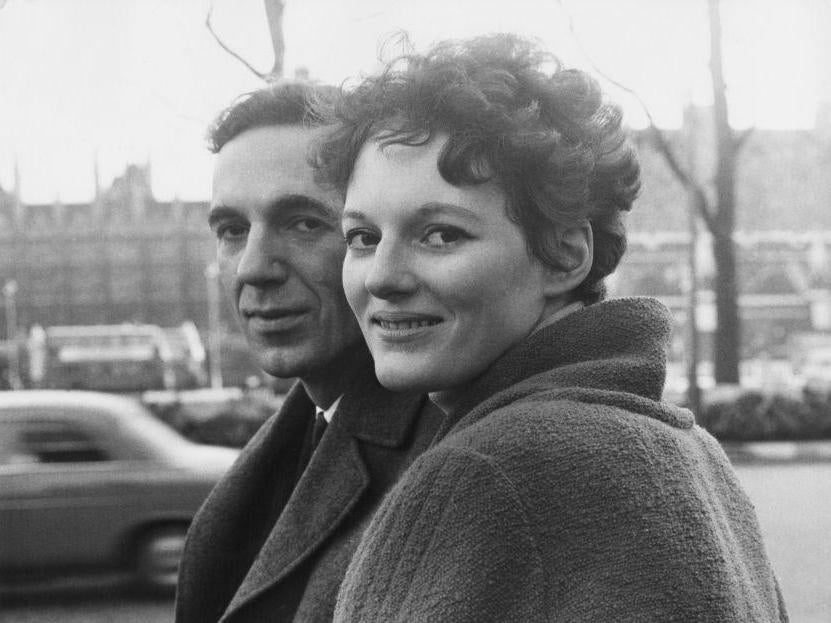Judith Kazantzis: Poet whose sense of injustice spanned Greenham Common and Guatemala
Her aristocratic background notwithstanding, she was a Labour Party supporter through and through and her verse was packed with politics

Your support helps us to tell the story
From reproductive rights to climate change to Big Tech, The Independent is on the ground when the story is developing. Whether it's investigating the financials of Elon Musk's pro-Trump PAC or producing our latest documentary, 'The A Word', which shines a light on the American women fighting for reproductive rights, we know how important it is to parse out the facts from the messaging.
At such a critical moment in US history, we need reporters on the ground. Your donation allows us to keep sending journalists to speak to both sides of the story.
The Independent is trusted by Americans across the entire political spectrum. And unlike many other quality news outlets, we choose not to lock Americans out of our reporting and analysis with paywalls. We believe quality journalism should be available to everyone, paid for by those who can afford it.
Your support makes all the difference.As the daughter of the Earl and Countess of Longford, she was one of the last ever debutantes. But as a poet and campaigner, Judith Kazantzis, who has died aged 78, was a keen advocate for social justice and reform.
Kazantzis was the fourth child of Frank Pakenham, Earl of Longford, the Anglo-Irish Labour cabinet minister who died in 2001, and his wife Elizabeth Harman, the historian, who died in 2002. Young Judith Elizabeth Pakenham grew up in a literary household. Her father was a publisher. Her seven siblings included historians Antonia Fraser and Thomas Pakenham and the novelist Rachel Billington.
Born in Oxford, Kazantzis was educated first at Mayfield School, which she likened to a prison, then at London’s More House School, before returning to her birthplace to read modern history at the all-female Somerville College.
Upon graduating in 1961, Kazantzis embarked on her own literary career, writing arts reviews for the Evening Standard and history textbooks. As the daughter of a peer, she was entitled to style herself “Lady” but quickly dropped the title in her professional life. In 1963, she married lawyer Alexander Kazantzis. The couple had two children.
Kazantzis wrote her first poem aged seven. In the 1970s, now in her thirties, she returned to her first literary love. She published her first collection, Minefield, which drew heavily on her complicated family relationships, in 1977.
She published 11 other collections of poetry and, in 2002, the novel Of Love And Terror – a multi-generational story of women in love and war.
Influenced by Sylvia Plath, Kazantzis’ poetry threw light on the power dynamics of relationships in the domestic and social spheres. Kazantzis also turned to the classics for inspiration, notably reworking the stories of Clytemnestra and Odysseus (in 2002 she translated In Cyclops’ Cave: The Odyssey, Book IX).
Kazantzis frequently used her poems to highlight injustice on an international scale. In 1986 she published A Poem For Guatemala, declaiming US involvement in the genocide of the Mayan Indians. In Just After Midnight, published in 2004, she wrote about the West Bank and Tiananmen Square. Her powerful verses brought her literary acclaim. In 2006, she was the recipient of the Society of Authors’ Cholmondeley Award.
Like her father, Kazantzis threw herself behind many social causes. She was a supporter of the Campaign For Nuclear Disarmament, joining the protest at the Greenham Common air base. Her contemporary poem Hiroshima Day expressed her disgust at the UK’s policy of nuclear deterrence.
During the 1990s, she worked for Kalayaan, a charity supporting migrant domestic workers. She was one of the founders of British Writers in Support of Palestine. She later chaired the judging panel of the Longford Prize for prison reform.
Also like her father, Kazantzis was a staunch Labour supporter. Upon graduating, she worked for the Chelsea Labour Party. However, she became increasingly disillusioned with the party under Tony Blair and eventually resigned her membership in 1991.
Kazantzis’s first marriage ended in 1982, though she retained her husband’s surname for professional reasons. She married again in 1998. Her second husband was lawyer and thriller writer Irving Weinman. For part of each year, Weinman’s teaching work took them to Florida’s Key West. They spent the rest of the year in Lewes, East Sussex. Kazantzis was Royal Literary Fund fellow at the University of Sussex from 2005 to 2006.
Aside from poetry, Kazantzis was an accomplished water-colourist and printmaker, who showed her work in many group exhibitions and at her Lewes home.
Weinman died in 2015. Kazantzis is survived by her two children, Miranda and Arthur, two step-children and her seven siblings.
Judith Kazantzis, poet, born 14 August 1940, died 18 September 2018
Join our commenting forum
Join thought-provoking conversations, follow other Independent readers and see their replies
Comments